GĐXH - In addition to some habits that cause itchy skin such as bathing in hot water and wearing inappropriate clothes, dry, cold weather is the main cause of skin irritation and itching in winter.
Winter itchy skin can occur on any part of the body but is most common on the legs, inner thighs, above and behind the knees, calves and around the ankles. Recognizable symptoms include dry, red, itchy, cracked skin that may bleed.
The main cause of itchy skin in winter is due to the dry, cold weather that causes the skin to lose moisture. A person may experience itching once or persistently throughout the winter and recur annually, and it will go away on its own during the summer months.
Additionally, you may also have an allergic or chemical reaction to scented laundry soaps and fabric softeners left in pillowcases, bed sheets and clothing, and chlorine in swimming pool water is another chemical that can dry out the skin, causing it to flake and itch.
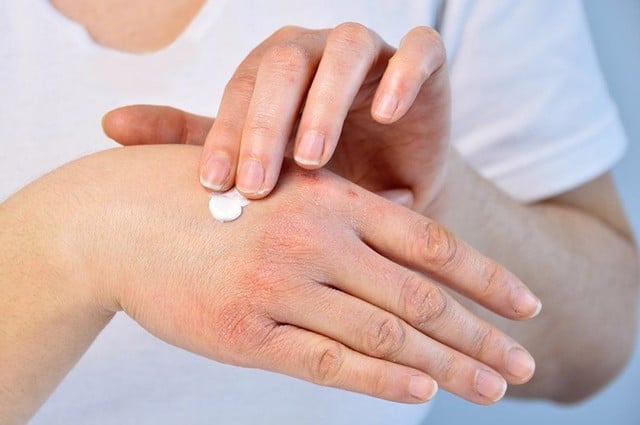
Illustration photo
Who is at risk for itchy skin in cold weather?
Almost everyone is at risk of experiencing skin allergies when exposed to cold weather. In some cases, the sensitivity to temperature makes allergies more common and predictable.
Some factors that influence the likelihood of skin allergies include:
- Genetics
- Weakened immune system due to underlying disease or viral infection
- People with allergies, contact dermatitis, asthma, allergic rhinitis...
- Skin allergies due to cold weather are also likely to occur in children, adolescents and pregnant women due to unstable health.
How to prevent itchy skin in cold weather
To protect your skin in the cold season and prevent skin diseases, you should take note of the following measures:
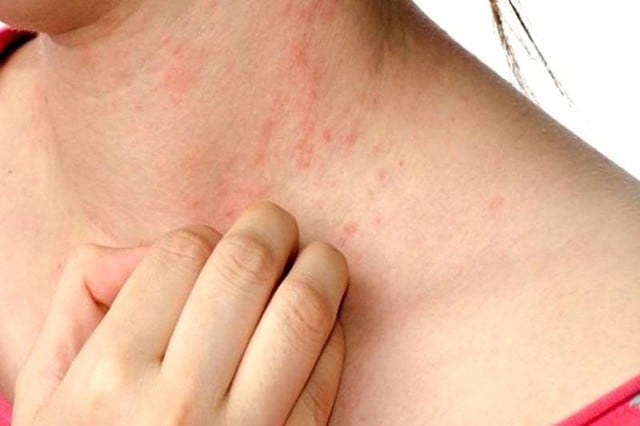
Illustration photo
Complete nutritional supplement
Eat lots of dark colored vegetables and fruits like carrots, melons, oranges... which are rich in beta-carotene, which is good for the skin. Minimize the consumption of onions, garlic... which contain a lot of sulfur which irritates the skin.
Keep your skin clean
Bathing and daily personal hygiene is essential, even in winter, because it helps remove bacteria from the skin, preventing skin infections that can lead to more serious skin diseases.
Do not use many chemicals
When bathing, you should only use warm enough water, do not rub hard. You should use soap and shower gel products that have antibacterial effects and are friendly to the skin to achieve the purpose of eliminating bacteria and protecting the skin better.
Moisturize the skin
Not only sick people but also healthy people need to keep their skin moist by avoiding using water that is too hot, avoiding contact with detergents without using gloves. Use a moisturizer suitable for the skin, especially after bathing.
Keep your hands and feet warm: To prevent chilblains (chilblains are swollen, red, and especially itchy fingertips and toes), you must first keep your face warm, especially your nose and ears. Because this is where the cold will cause blood vessels to constrict, then spread, causing your hands and feet to turn purple...
Source: https://giadinh.suckhoedoisong.vn/ngua-da-khi-troi-lanh-can-lam-gi-de-nhanh-khoi-172241230180900496.htm




![[Photo] National Assembly Chairman Tran Thanh Man attends the VinFuture 2025 Award Ceremony](/_next/image?url=https%3A%2F%2Fvphoto.vietnam.vn%2Fthumb%2F1200x675%2Fvietnam%2Fresource%2FIMAGE%2F2025%2F12%2F05%2F1764951162416_2628509768338816493-6995-jpg.webp&w=3840&q=75)
![[Photo] 60th Anniversary of the Founding of the Vietnam Association of Photographic Artists](/_next/image?url=https%3A%2F%2Fvphoto.vietnam.vn%2Fthumb%2F1200x675%2Fvietnam%2Fresource%2FIMAGE%2F2025%2F12%2F05%2F1764935864512_a1-bnd-0841-9740-jpg.webp&w=3840&q=75)


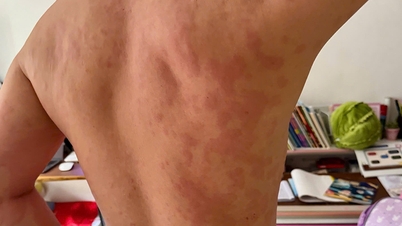



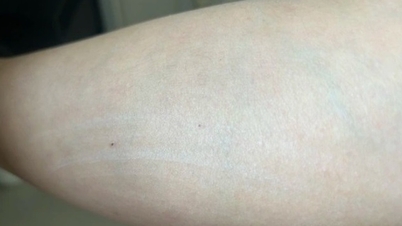
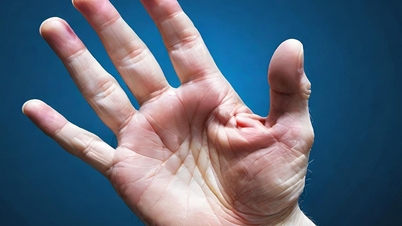



















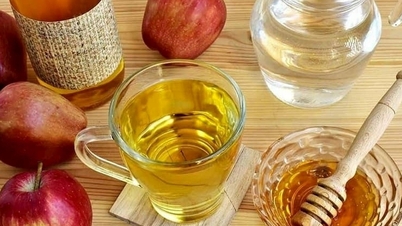
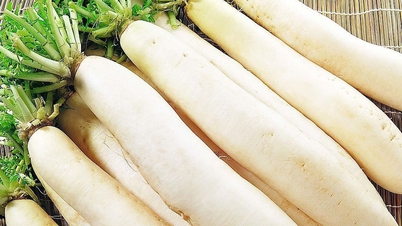










































































Comment (0)